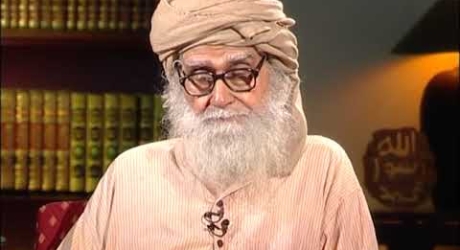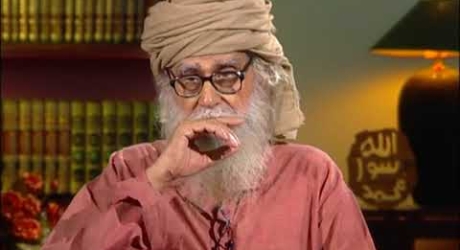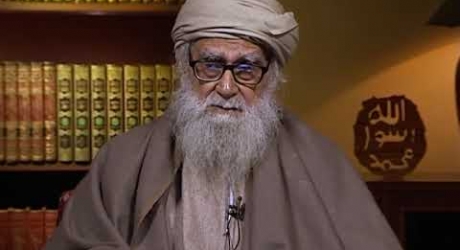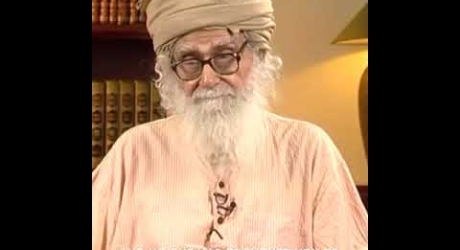Nature’s greatest gift to man is his mind. The mind is the greatest miracle of nature. The German psychologist Alfred Adler observed: “One of the wonder-filled characteristics of human beings is their power to turn a minus into a plus.” Now there is the question of how this miracle may come about? The answer is that if a person makes a mistake and saves himself from being a victim of negative thinking, a miraculous event occurs by nature. By the law of nature, a rethinking process is developed in him. He analyzes what happened to him and tries to understand where he went wrong. He thinks about how he may achieve what he could not at the first attempt at the second attempt. In this way, a new positive thinking process is initiated in this person’s mind, which becomes a means for his intellectual development. Thus, this process turns his mistake into a mistake plus. A mistake is an error or fault resulting from poor judgment. If you have a positive mind, your mistake will motivate you to find out where you went wrong. This kind of rethinking will open up new possibilities for you. Thus, indirectly, the mistake will become a means to climb to new heights of success. The condition for turning a mistake into a mistake plus is that one should not take a mistake to be a complete stop. Instead, one should consider a mistake as a comma. If one makes a mistake ten times, one should put a comma at each instance. One should not stop unless one’s mistake has turned into a mistake plus. Remember that the quantum of mistakes is limited in this world, but the quantum of achievements is unlimited. No mistake can close the door to your achievement, provided that you can keep your thinking positive.
Introduction
Today’s theme came to my mind after a conversation with an acquaintance. He told me that he was working towards empowerment of Muslims in economic and educational spheres. The term ‘empowerment’ has often been used in the context of upliftment of underprivileged sections of the society. I told him that rather than imitating the activities of others, he should have referred to the Quran and Hadith to find direction. I told him that such acts of ‘empowerment’ would not help the Muslims because it is not economy which is the issue, the real issue is that the Muslims lack pragmatic thinking.
The Quran outlines four tasks that a believer must perform: recitation of the Book (tilawat), receiving education (talim), purification of self (tazkia) and striving to attain wisdom (hikmah). While tilawat aims at spreading the message of God to mankind, the rest three are prescribed for intellectual development of a believer.
Personal Experience
On August 20, 2010 I was invited to a function organized at the Teen Murti Auditorium in New Delhi. The dais consisted of the Prime Minister Dr. Manmohan Singh, UPA Chairperson Ms. Sonia Gandhi, Dr. Karan Singh and Mr. Motilal Vohra. In this function, I was conferred with an award. During the felicitation speech, the dignitaries on the dais made a mention of our mission and acknowledged the new English translation of the Quran and my recent book, The Prophet of Peace. This was an encouraging introduction of our mission.
After the function I met a Muslim, who jubilantly said: “I felt very nice. Our Islam was made proud.” This remark hurt me deeply because this person could only gather pride from the event unlike my companions, who saw burgeoning dawah opportunities as their mission received acknowledgement. They felt grateful to God for the unlimited avenues that lay before them. This was a fact as of the fifty seven Muslim countries in the world, India provided maximum opportunities to the Muslims.
Unfortunately, those who develop the psychology of pride (fakhr) lack the art of thinking and remain opportunity-blind. The biggest disadvantage of such an approach is that it inculcates pride for oneself, which arouses the concept of ‘we and they’. This idea is contradictory to the underlying theme of dawah work which subscribes to ‘we, we’ and not ‘we, they’.
The art of thinking
It is most unfortunate that the extent of depravity among the Muslims is such that they now lack the very art of thinking. The problem therefore does not pertain to economical empowerment of Muslims but of their intellectual empowerment. The derailment from the right path was predicted in the following Hadith according to which,
Once when sword will enter my community, it shall not be ridden until doomsday
(Musnad Ahmad)
This ‘sword’ entered at the time of Caliph Uthman when Muslims began fighting amongst themselves. This thrives till date in the form of violence, hatred, fundamentalism, extremism, which continues to be justified in the name of Jihad. It is crucial to understand that in providing the premonition, this Hadith outlined the way forward in event of such fateful derailment – that is, to work towards the return of community to the right path.
Where did the Muslims lose the trail?
If we refer to the model of Prophet Muhammad, it will become clear that it was a dawah model. The Quran says
O Prophet, We have sent forth you as a witness, as a bearer of good news and a warner (33:45)
This model aims at fostering love and well-wishing towards fellow human-beings. However, present-day Muslims have lost the sight of this model and therefore the work of re-acquainting them with this model assumes prime importance. Unfortunately, in all these years no one took up the task of reviving the dawah model of the Prophet. Instead the Muslims made the Prophet Muhammad a source of pride (Afzal Ambiya).
During the Abbasid Caliphate itself, discussions and debates were rampant on issues ranging from economy to jurisprudence but dawah planning became absent from the minds of Muslims. Despite the wipe out of the concept of dawah work, Islam continued to spread on its own strength. The present-day concept of establishing Islam worldwide is fallacious as it is based on pride and not on the Prophetic model of dawah.
In wishing well and providing guidance, the dawah model aimed at promoting amicable relations and development of human-friendly behaviour. The basis of dawah work is not to establish pride but to wish well for mankind.
It must also be realised that in order to fulfill his basic needs man is compelled to work however, he sees no such compulsion to work towards his intellectual development. Therefore the task of working towards the intellectual empowerment of believers assumes great significance. An article published in a Muslim magazine was entitled ‘Task Ahead’ but it only talked about Muslim empowerment. There was no mention of Dawah work. This is because the concept of dawah work is alien to the minds of present-day Muslims. They have not understood dawah as a discipline that transforms man’s thinking, behaviour and actions.
Empowering the intellect
Referring to the month of Ramzaan, the Quran says
The month of Ramadan is the month when the Quran was sent down as guidance for mankind with clear proofs of guidance and the criterion by which to distinguish right from wrong (2:185)
Ramzaan is the month prescribed for the intellectual empowerment of believers. Reading the Quran much, leads to development of the art of thinking. Contemplation on the Quran has three aspects as outlined in the above verse. That is to serve as guidance, proof and criterion. Let me explain these one by one.
The Quran provides guidance (huda) to those who read it. This can be understood by comprehending the following verse of the Quran, which reads
God would never withdraw a favour that He had conferred upon a people unless they change what is in their hearts (8:53)
This verse indicates that the point of focus of the Quran is the individual and not the crowd. This is so because when individuals become rightful thinkers, the society transforms. Such re-engineered minds find no meaning in raising complaints, protests or demands and channelise their energy in result-oriented endeavours.
The next aspect pertains to Baiyyinat or proofs that abound our surroundings. As we read the Quran, we come across the following verse, which states
Do not those who deny the truth see that the heavens and the earth were joined together and that We then split them asunder? (21:30)
This verse points to the occurrence of the Big Bang explosion that led to the formation of the universe. The inward journey of the particles of the compact super atom (universe) became its outward journey. As per the laws of physics, such alteration of course can only be attributed to an external intervention. This intervention points to the existence of an intervener, another name for who is God.
The third aspect outlined in the Quran is that it provides the criterion to differentiate (Furqan).The principle of differentiation is so crucial that it saves man from faltering in life and enables him to derive right lessons from events. The Quran therefore provides an introduction to those items which are required for the progress of man. This introduction is in the language of signs, which become clear upon contemplation. For example a verse in the Quran states
We have created man into a life of toil and trial (90:4)
This verse indicates that hardship is a part of man’s life. Realisation of this fact compels man to strive and fathom the positive aspect of hardship. Thinking on these lines, brings to fore the reality that problems are actually a stepping-stone in life because hardship activates mind and provides a challenge and incentive for man to grow. In effect, the problems man faces in life help harness his potential. As is famously said, ‘It is not ease but effort, not facility but difficulty that makes a man.’
Here am reminded of an affluent lady who despite being very intelligent could not harness her potential. This was so because she wasted herself in shopping sprees and excursions and therefore could not realise her potential. Many such examples can be found in our society which reiterate the importance of hardships in life and how they play a crucial role in the progress of man.
Saving oneself from distraction
Fasting was ordained to train the believer to save himself from distraction. By reducing himself to bare necessities, a believer is able to divert his attention to comprehending the Quran. He who has not read the Quran takes a huge risk of ignoring Divine guidance because Quran claims to be the Word of God in which the Creator has made plain His Creation Plan for man to understand.
Unfortunately, the present-day Muslims know only the historical aspect of the Quran and therefore live in the psyche of establishing their pride. This is the reason why orators who incite the past glory of the Muslims have a sizeable following. Here I recall the instance of meeting an Arab debater who had a large following on account of being a staunch critic of the Israelites. He used to verbally crush the Israelites, which had an instant appeal among the Arabs as the later could not overcome the former in the battlefield. This instance evinces the defeatist mentality of the Arabs. Such behaviour clearly contradicts the very first verse of the Quran which states
All praise is due to God (1:2)
Instead of focussing on its meaning, present-day Muslims are more concerned about the correct rendition of the Quran. Such an approach does not allow them to concentrate on the meaning of the Quran.
According to a recent report, Muslims are jubilantly claiming that they will construct a mosque on Ground Zero (United States of America). When I got this news, I was amazed to realise the sheer lack of wisdom amongst the Muslims who instead of pacifying the Americans are furthering provocation and hatred. Inciting such is against the principles of Islam. It would have been wise if they would have made an effort towards pacifying relationships. It therefore assumes critical importance to foster realistic and practical thinking amongst the Muslims.
May God grant us the wisdom to take guidance from the Quran!











